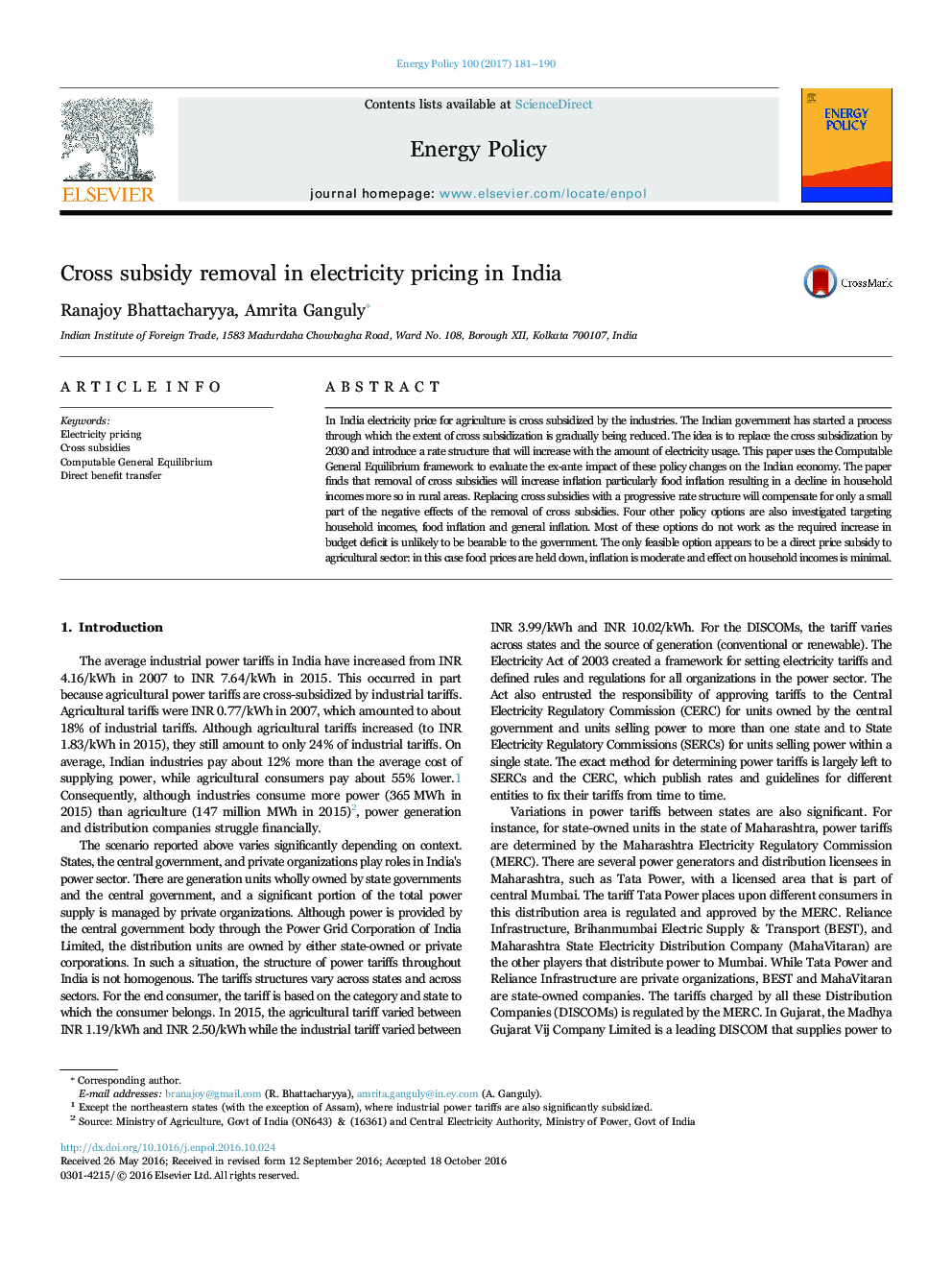| Article ID | Journal | Published Year | Pages | File Type |
|---|---|---|---|---|
| 5105847 | Energy Policy | 2017 | 10 Pages |
Abstract
In India electricity price for agriculture is cross subsidized by the industries. The Indian government has started a process through which the extent of cross subsidization is gradually being reduced. The idea is to replace the cross subsidization by 2030 and introduce a rate structure that will increase with the amount of electricity usage. This paper uses the Computable General Equilibrium framework to evaluate the ex-ante impact of these policy changes on the Indian economy. The paper finds that removal of cross subsidies will increase inflation particularly food inflation resulting in a decline in household incomes more so in rural areas. Replacing cross subsidies with a progressive rate structure will compensate for only a small part of the negative effects of the removal of cross subsidies. Four other policy options are also investigated targeting household incomes, food inflation and general inflation. Most of these options do not work as the required increase in budget deficit is unlikely to be bearable to the government. The only feasible option appears to be a direct price subsidy to agricultural sector: in this case food prices are held down, inflation is moderate and effect on household incomes is minimal.
Related Topics
Physical Sciences and Engineering
Energy
Energy Engineering and Power Technology
Authors
Ranajoy Bhattacharyya, Amrita Ganguly,
